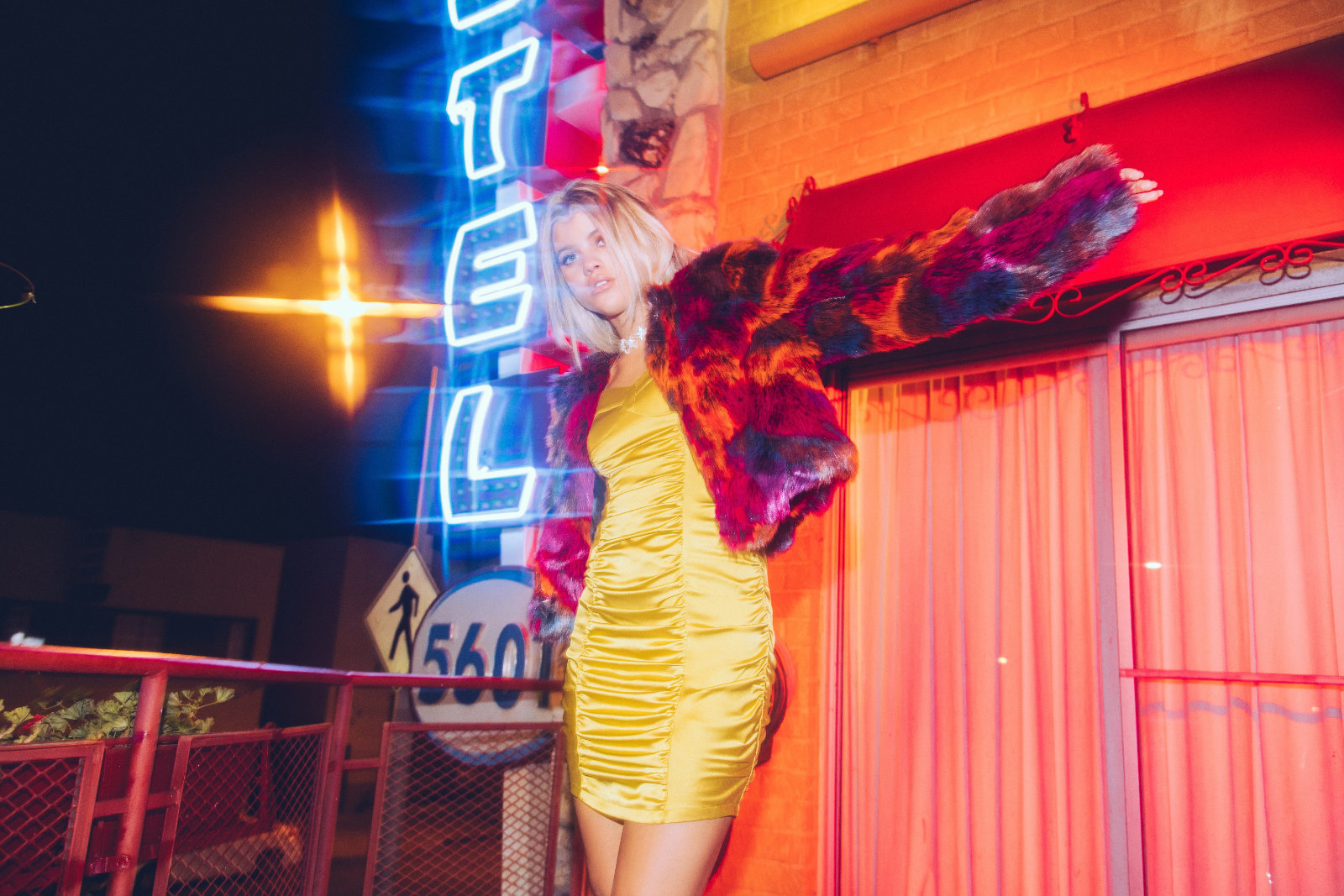
FASHION After decades of being the realm of early adopting computer users, e-commerce is now the norm—but will a western or Chinese model prevail? Bhavana Bhim asks
First published in the September 2019 issue of Lucire KSA

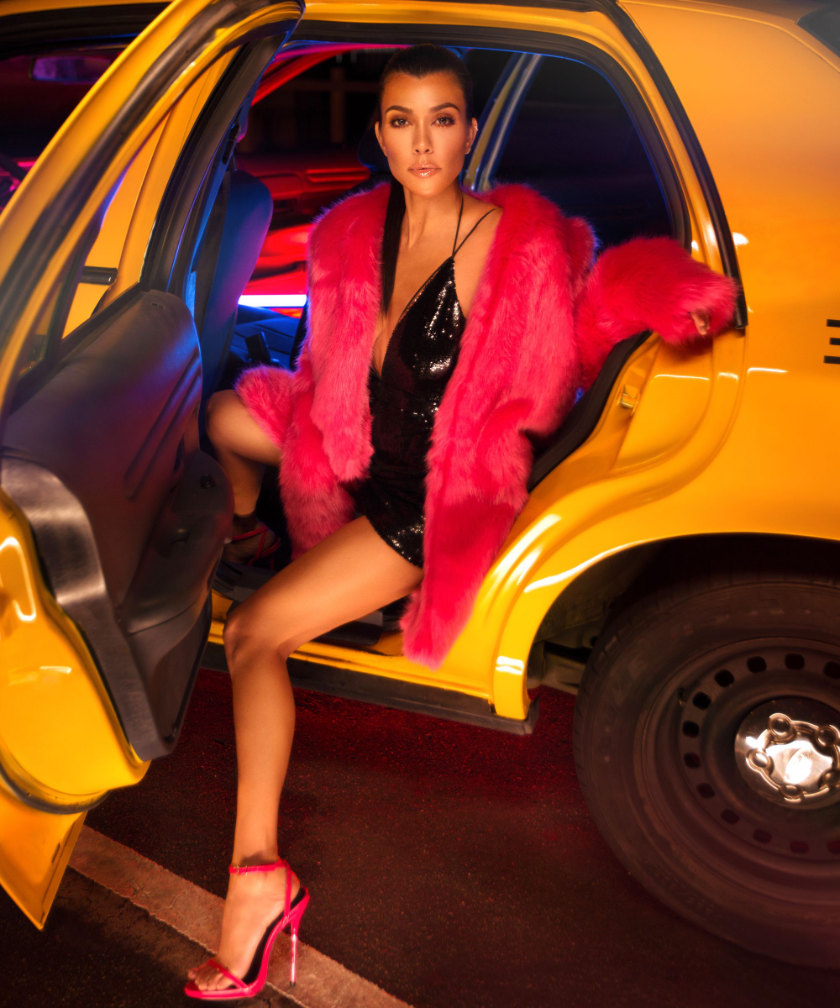
British e-tailer Pretty Little Thing has collaborated with the likes of Olivia Culpo and Kourtney Kardashian
Bhavana Bhim holds a degree in classical studies and is a writer for Lucire.
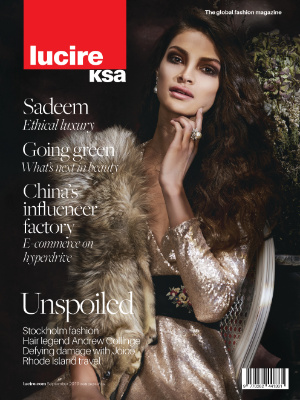 With industries such as social media, influencers, and e-commerce thriving with fashion, there’s a rapid formation of jobs and transactions being secured 24–7. Very quickly we realize that the internet is part of the routine of everyday modern life.
With industries such as social media, influencers, and e-commerce thriving with fashion, there’s a rapid formation of jobs and transactions being secured 24–7. Very quickly we realize that the internet is part of the routine of everyday modern life.
As investigated in Lucire KSA earlier this year (May 2019), brick-and-mortar stores are facing harsh realities as they vanish from the streets with e-commerce retail coming into play. But how does e-commerce manage to thrive in the fashion world? And is fast fashion a bad thing or something which we all need to embrace?
The Business of Fashion mentioned that Amazon is a huge player for the internet market-place accounting ‘for about 40 percent of online sales in the us … fuelling the growth of e-commerce.’ With sites such as Amazon, Ebay and Depop people buy and sell because it’s quick and fast.
E-commerce has been around for a while, yet it’s only recently that people are cottoning on to its business perks. A perfect example of a thriving e-commerce company is Boohoo, the UK-based e-commerce retailer which specializes in its own brand of clothing targeting 16- to 30-year olds. It was co-founded in 2006 by Mahmud Kamani and Carol Kane with over US$580 million in revenue, and over seven million Instagram and Twitter followers combined. The company uses a mix of influencers and models to sell fast, along with 2,175 employees who assist the online company. The single platform very quickly grew into a large company which hosts BoohooMan.com, PrettyLittleThing.com, NastyGal.com and Misspap.co.uk, all e-commerce sites with similar target markets. Kourtney Kardashian served as ambassador for Pretty Little Thing and released a capsule collection with party-inspired pieces in 2017. Olivia Culpo and Sofia Richie, famous American celebrities, have also collaborated with the e-tailer to release their own lines.
And Boohoo continues to enlarge its online presence as it recently bought retail outlets Karen Millen and Coast for £18·2 million. In an article for The Guardian, the CEO of Boohoo, John Lyttle, stated that the recent acquisition is ‘another milestone in the group’s growth story as it continues to invest in its scalable multi-brand platform and gain further share in the global fashion e-commerce market.’
Competition and growth are two factors which keep these business booming. At this rate, Boohoo will continue to grow, considering the young consumer market that it encapsulates. Followers and shoppers can also download a Boohoo app and purchase directly from their phones. With one glance and a swipe of a fingertip, transactions are made.
Although the western world partakes in fast fashion readily, there’s a beast of e-fashion occurring in China. China has illustrated a way to truly embrace fast fashion and maximize the online world. They have been known to incubate influencers, pluck them from society early on and prepare them for a money-making extravaganza through e-commerce.
A BBC case study on China found that they are leading the world through strategic influencer management. Zhang ‘BB’ Xi and Zhang Dayi (張大奕) are a just a couple of e-commerce beauty queens who can quickly sell over US$100 million worth of products online.
Instead of the laissez-faire, organic nature of western influencers appearing on the scene, China has found a way to turn this into a factory. They are both signed with Ruhnn Holding, one of China’s largest key opinion leader (KOL), influencer management companies. What sets Ruhnn apart from standard PR or modelling agencies is that they pay for advertising and livestream video, and have access to factories where they can duplicate (read pirate, or copyright-infringe) and sell high-fashion goods to the consumers instantly. If you thought shopping online at Boohoo.com was quick, then think again, because Ruhnn is changing the meaning of e-commerce.
Ruhnn will not only have factories, but will hire talent scouts who trawl the internet (to the tune of hundreds of people a week) and discover people like Dayi and Xi who start out with a few thousand followers and quickly skyrocket to stardom. If you want to be part of Ruhnn then you must have a knack for fashion and the ability to influence the masses.
‘Prospective candidates undergo a battery of tests. They’ll be given a stack of 100 pictures and asked to pick out what they think will be the best selling products worn and held in each photo—[it’s] an attempt to identify their marketing nous,’ the BBC found.
If successful, Ruhnn will invest in the candidates and attract consumers to their posts through paid advertising online. Brands such as Maybelline, Olay along with fashion retailers and Korean beauty brands have all partnered with Ruhnn and their selected Instagram influencers to make income and build exposure in the Chinese market.
continued below
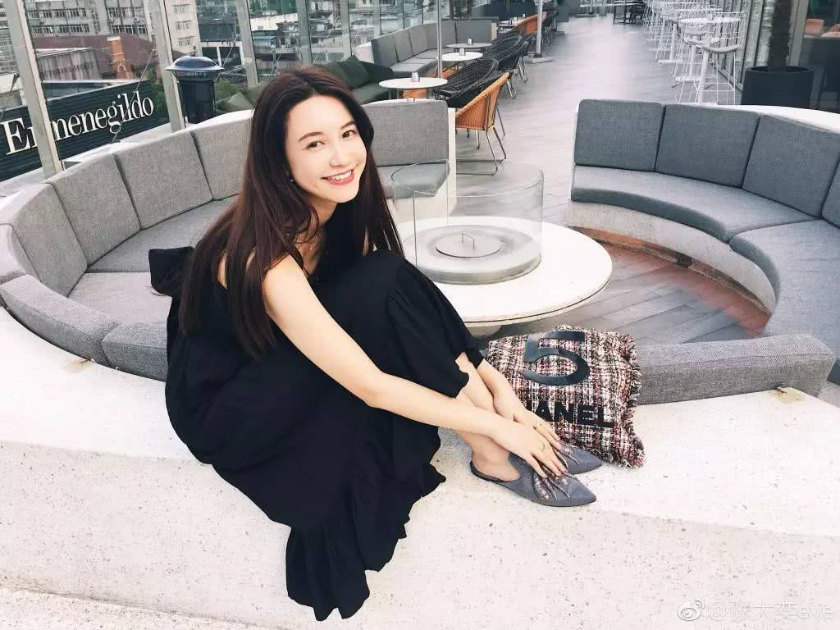
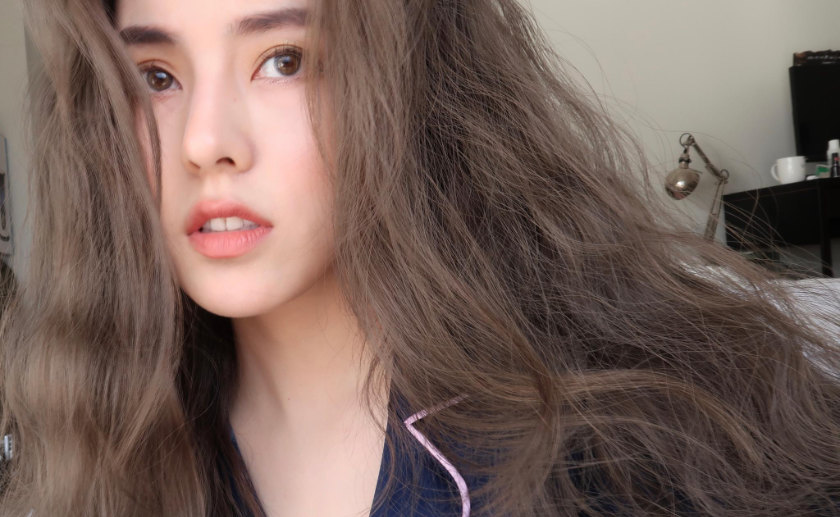 China’s big influencers: Zhang Dayi and Zhang ‘BB’ Xi
China’s big influencers: Zhang Dayi and Zhang ‘BB’ Xi
Through a quick social media scan you can see that Ruhnn holding is leading the way as both Zhang Dayi and Zhang ‘BB’ Xi have commercial influencer success written all over their internet presence.
Dayi has been dubbed by some observers as the ‘Kylie Jenner of China’. She has a lot of followers and makes millions of dollars per annum through her two e-commerce sites, the Wardrobe I Like, and her online beauty website, which sells out immediately.
You could call Dayi a fashion influencer of her day, a millennial or gen-Z icon. She rose to fame online and become an entrepreneur through strategic marketing and cameras which capture her moves 24–7. There’s a certain unsettling Truman Show vibe to it all—and Ruhnn seems to be providing that film’s writer, Andrew Niccol, correct.
Dayi was one of the first influencers to sign with Ruhnn. What makes her so strategic is that she can attend Paris Fashion Week and report back to her agency, who will duplicate items on the runway to sell online through livestream modelling and online posts. But here’s the catch: through an hour’s worth of livestreaming, her followers and fans can comment and give instant feedback to the designers in China from anywhere in the world.
Ruhnn calls Zhang Dayi ‘most commercially valuable celebrity on Weibo’, and her 11 million follower figure there seems to bear that out.
Zhang ‘BB’ Xi also reaps the rewards from making her way into Ruhnn’s hands. She has modelled for Dior and attended events with Cartier, continuing to grow her following and career success through e-commerce. Head on to her Weibo (where she has over 800,000 followers) or her Bilibili platforms, and there are precious few polished photos to be found. Instead, the followers appreciate the authentic, home-made look to some of her vlogs and photos—even though they are intentionally produced to look that way.
Yet, few pay that much attention to them in the western world. Is the rest of the world lagging with China’s success or is this something which only works in a particular market? In the late 2010s, and as we enter the 2020s, there are signs that China has overtaken the west on some counts: anyone with a Chinese-spec cellphone will see the quality of Chinese apps. Developers have been forced to up their game to cater for a national population of over 1,000 million—and the Chinese expertise in other things digital has grown for similar reasons. This sophistication has expanded to mobile payment platforms such as Alipay, which has 870 million users and accounts for half of the country’s non-bank online payment market. Other popular apps, such as Wechat, have their own payment system.
As the rest of the world continues to build digital literacy, competition and growth will keep the drive-thru of fast fashion moving forward for decades to come—and whichever model the world winds up following, the Chinese lead in online payment might still see us all on their platforms in the 2020s to participate in the next generation of e-commerce. •
Related articles hand-picked by our editors
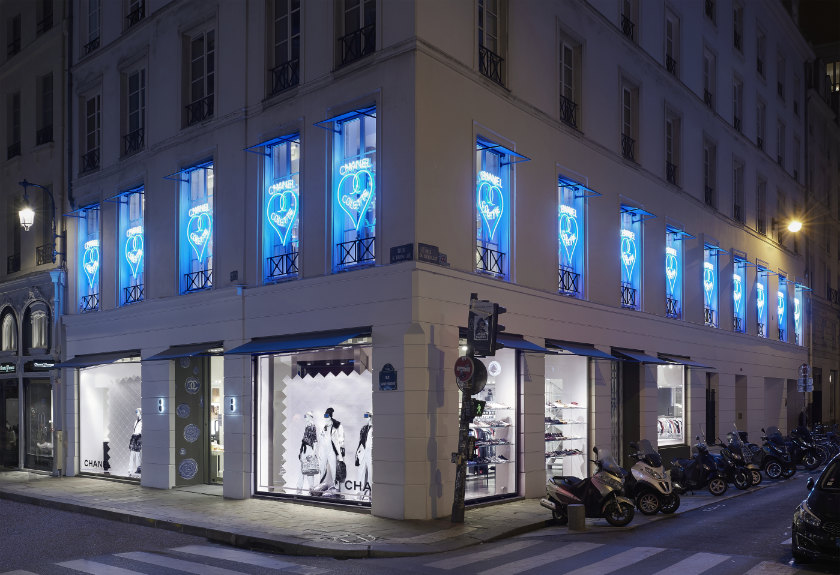
Escaping the black holes
Colette shut in 2017 and other retailers are either disappearing or selling up. Bhavana Bhim examines how retailers can do some soul-searching to present a more authentic face
From the May 2019 issue of Lucire KSA
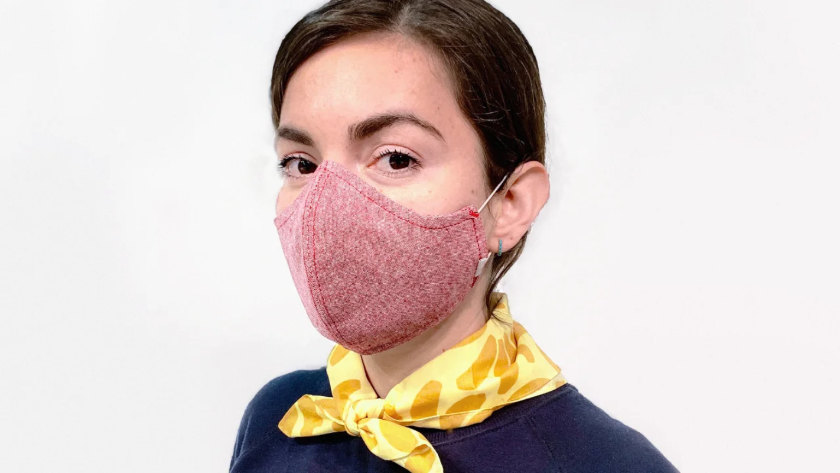
In a more meaningful mode
The fashion, beauty and luxury sectors respond to the COVID-19 pandemic, especially in the west, now the hardest hit part of our planet. Jack Yan looks at their activity to date
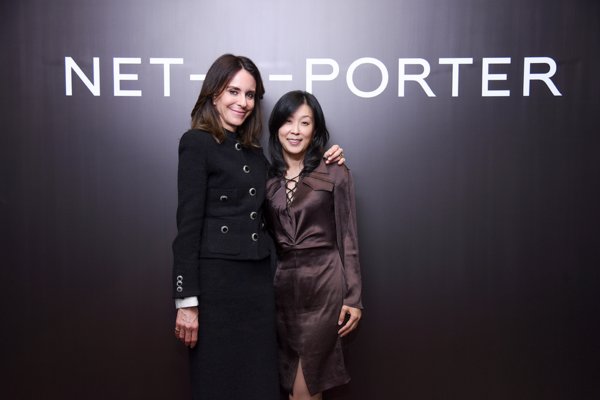
Net-à-Porter adds Chinese designers to Tmall
Retail news from three continents, from travel editor Stanley Moss’s new merchandising site, to a new US app that links stylists to shoppers, and 11 Chinese designers are added to Net-à-Porter and Alibaba joint venture in China
Advertisement
Copyright ©1997–2022 by JY&A Media, part of Jack Yan & Associates. All rights reserved. JY&A terms and conditions and privacy policy apply to viewing this site. All prices in US dollars except where indicated. Contact us here.